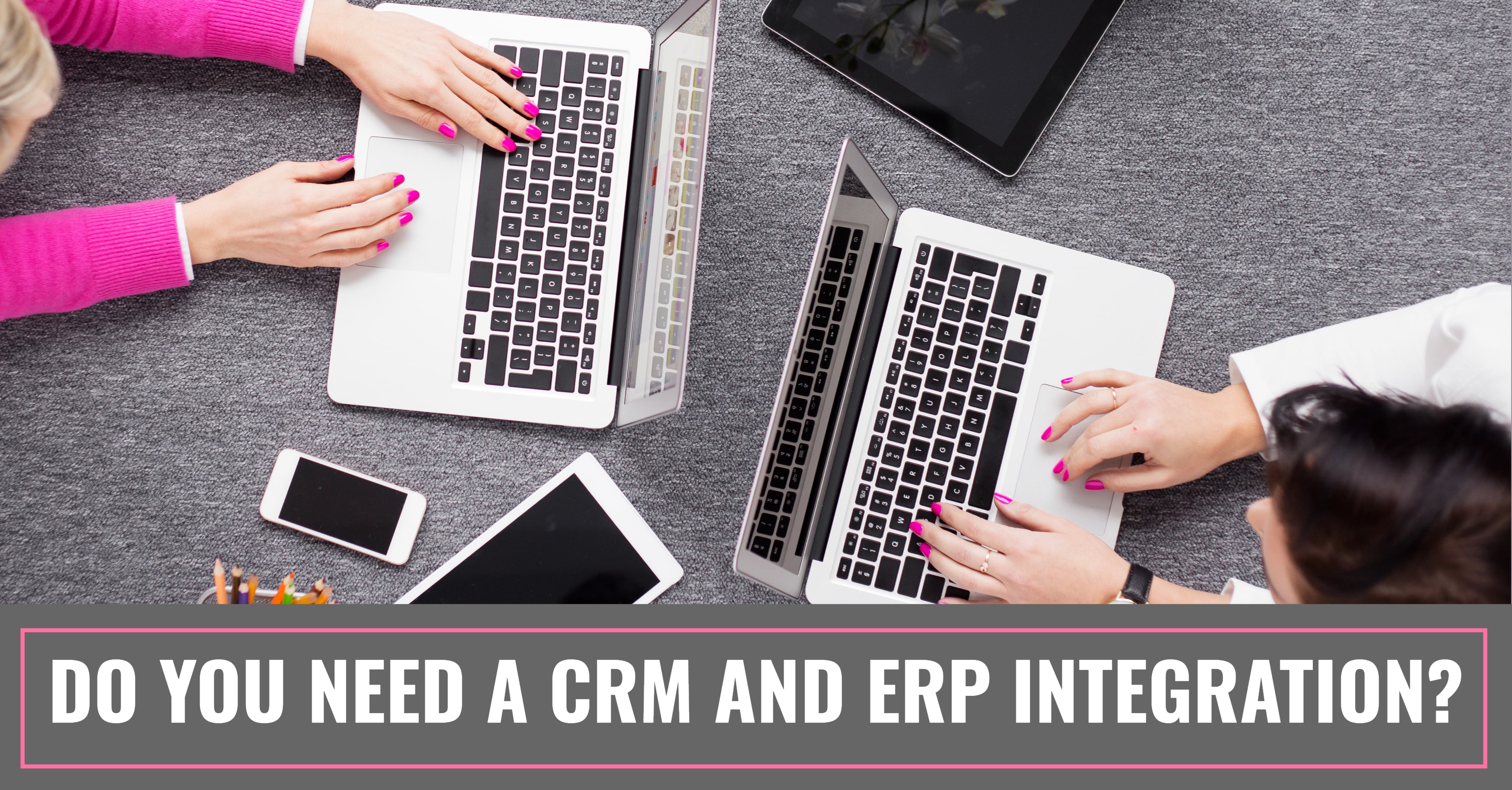3 Signs that Software Integration is Right for You
So you’ve implemented ERP and CRM solutions. After your users became accustomed to the systems, you’ve noticed incredible improvements—faster sales cycles, less downtime and waste reduction, to name a few. But even though you’re on the path to a nice return on your investment, you notice some areas that could use some fine-tuning. Hiccups in your processes and data collection remain, preventing your manufacturing or distribution firm from accomplishing all its goals. Tasks that should take only a few hours somehow require days of back-and-forth between various departments. Managers still struggle to gain a 360-degree view of enterprise operations.
In a fast-paced marketplace, you can’t afford to let these little roadblocks stand in your way of business growth. The key to smoothing over inefficiencies is to integrate your CRM and ERP software. If your company displays any of the following issues, it’s time to consider software integration.
1. You’re Still Manually Entering Data
Your CRM automatically updates and captures front-end data, such as customer interactions and marketing metrics. Meanwhile, the ERP system takes care of back-end information, including inventory levels and financial data. Here’s the problem: Even though each system is working overtime to provide accurate data, someone in your office still needs to manually input data from one platform into the other. Software implementations cut down on a lot of manual data entry, but you still need to key in duplicate data. This exposes your system to inaccuracies and slows down your processes.
CRM and ERP integrations get rid of duplicate data entry for good. Any change in your front-office data, whether it’s a new client or a removed custom field, is reflected in your ERP system. On the other end, changes in orders or product information made in your back office appear automatically in your CRM interface. A central hub for enterprise data not only improves productivity but also maintains data integrity and consistency.
2. Users Lack Access to Critical Data
Manufacturing and distribution businesses can’t operate efficiently in information silos. When departments can’t work together effectively or access critical data points, your customers can’t enjoy optimal service. For example, sales representatives can’t share product availability with customers if they only have insight into marketing and sales data. Supply chain managers can’t procure the right quantity of parts and raw materials if they can’t leverage customer data to predict consumer demand.
By connecting CRM and ERP software, users gain insight into every corner of their enterprise. Users can get all the information they need from their familiar software platforms, rather than search through multiple files or applications. With comprehensive data at their fingertips, employees can make smarter, faster decisions to power business growth.
3. Your Operations Are Too Slow
When departments operate in silos, using separate software applications, they slow down critical processes. Essential operations such as payment authorization or order fulfillment require endless back-and-forth tasks that can take days, causing customers to grow impatient. ERP and CRM integrations cut out a lot of the manual tasks that create delays. Data can automatically flow from one end to the other with no human intervention, simplifying sequences and reducing the time it takes to complete processes from days to hours. Automated workflows enhance efficiency, giving employees more time to focus on revenue-generating strategies.
Wrap Up
You can’t expect to maintain total consistency and streamline operations if you’re running disjointed software systems. By integrating ERP and CRM into a single source of truth, you maximize the value of your software and gain comprehensive insight that can be leveraged for business growth and productivity.
Plus, your integration won’t take as long nor cost as much as an implementation. That’s especially the case if you choose Unity as your integration solution. Unity is a pre-built integration application created by Datix, an Epicor Gold Partner and integration specialist. Unity connects Epicor ERP with an array of systems such as CRM, eCommerce and Marketing Automation software. Our experienced consultants can install the application quickly without any custom coding required on your end. We’ll also make any customizations necessary to support your unique processes and provide ongoing maintenance after go live.
Manage all your operations from a single source of truth—contact Datix today to integrate your enterprise software systems!
{{cta(‘770c1544-d87d-4acb-9fc4-7a25e1385094′,’justifycenter’)}}



